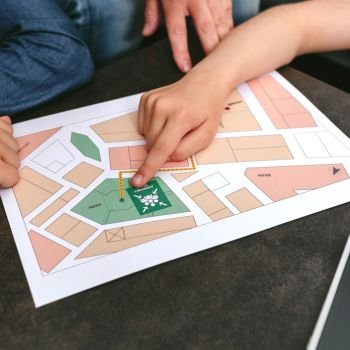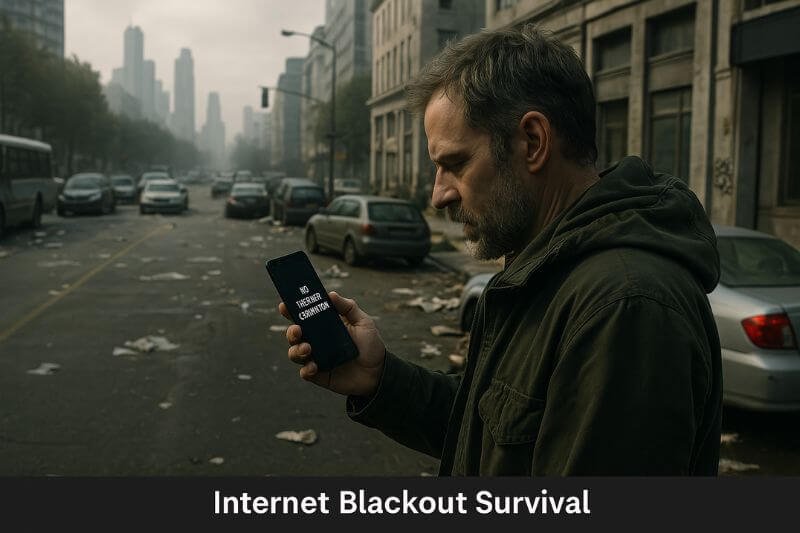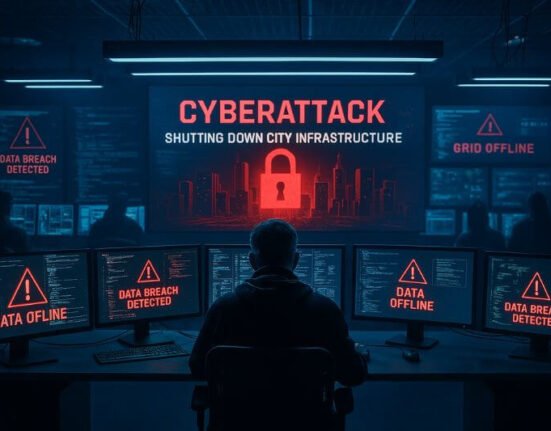A Realistic Global Threat
Few scenarios are as quietly terrifying as a global internet blackout. In a world where almost every function—communication, banking, healthcare, logistics, governance—relies on digital infrastructure, the loss of internet connectivity on a massive scale would be nothing short of catastrophic.
Security analysts and digital resilience researchers are increasingly concerned that such a blackout is no longer just a theoretical possibility. Whether triggered by a cyberattack, undersea cable sabotage, satellite failure, or infrastructure collapse, the consequences of a global digital outage would be immediate and far-reaching.
This article examines the potential causes of an internet blackout, the consequences for society, and the essential steps individuals and communities must take to survive without connectivity.
Understanding the Threat
The internet is often perceived as an omnipresent, unstoppable force. But behind the scenes, it remains a fragile and vulnerable system. The physical infrastructure of the global internet—including data centers, satellites, fiber-optic cables, and DNS servers—is highly centralized and easily targeted.
Cybersecurity specialists have long warned that a sophisticated cyberattack could take down core internet services. A coordinated strike on domain name systems or a breach of key cloud providers like AWS or Google Cloud could cascade into a global outage. The increasing dependency on a handful of tech giants magnifies the systemic risk.
Another overlooked vulnerability lies in the ocean. More than 95 percent of global internet traffic passes through undersea fiber-optic cables. These cables, laid out in intricate global networks, can be severed by earthquakes, sabotage, or even routine maritime activity. A few strategic cuts could isolate entire continents.
Meanwhile, our growing dependence on satellites for internet access, GPS, and military coordination creates another attack surface. Anti-satellite weapons, now being tested by multiple nations, and natural threats like solar flares could disrupt space-based systems for months, if not years.
Immediate Consequences of a Blackout
In the event of a global internet shutdown, the first and most noticeable impact would be the collapse of communication. Messaging apps, email, video calls, and cloud-based tools would vanish. Landline phones may still work locally, but mobile networks and VoIP systems would be instantly paralyzed.
The financial system would follow closely behind. With digital banking, online payments, and ATMs all relying on the internet, economic transactions would freeze. Most people would be unable to access their money, pay for groceries, fuel, or even receive salaries. Cryptocurrency would be inaccessible. Only physical cash and in-person bartering would retain value—if briefly.
Supply chains would grind to a halt. Modern logistics relies entirely on digital tracking, scheduling, customs systems, and automated warehouses. Supermarkets would empty within days, not weeks. Deliveries of food, medicine, and essential goods would stop altogether. Panic would escalate quickly.
At the same time, governments, media outlets, and emergency services would struggle to communicate. Without the internet, authorities would be limited to radio, paper, and word-of-mouth channels. Disinformation and rumors would spread rapidly. Civil unrest would become almost inevitable, particularly in urban areas.
Social and Political Fallout
The psychological impact of a sudden internet shutdown cannot be overstated. Billions of people live in constant connectivity. The internet is not just a tool—it is embedded in our identity, economy, culture, and governance. A blackout would result in more than inconvenience—it would spark a deep crisis of trust, purpose, and control.
In large cities, social order would likely begin to fray within hours. Looting, hoarding, and violence could erupt in neighborhoods where access to food, water, or healthcare is threatened. Without social media or messaging platforms, people would have no way to check on loved ones or receive real-time safety updates.
Governments might respond by declaring states of emergency or imposing martial law. In authoritarian regimes, the opportunity to suppress dissent would be enormous. Even in democracies, civil liberties could be curtailed in the name of restoring order and re-establishing connectivity.
At the geopolitical level, an internet blackout would have profound implications. Global trade would stall. Military coordination between allied nations could break down. Countries might accuse one another of cyberwarfare, escalating into diplomatic or even military confrontations. The entire international system—already strained—could tip toward fragmentation and chaos.
Preparing for Survival Without the Internet
For those seeking to prepare, survival in a world without internet begins with a fundamental shift: learning to operate offline. Redundancy, resilience, and analog thinking become essential.
The most immediate need is communication. Without digital channels, families and communities must fall back on physical communication plans. Printed contact lists, designated meetup points, and the use of analog devices like ham radios or walkie-talkies become vital. In rural or remote areas, shortwave radio remains the most reliable tool for receiving news and coordinating aid.
Financial preparedness is equally urgent. Those relying entirely on digital banking should start diversifying. Keeping a stock of physical cash in small denominations is one way to ensure short-term viability. Precious metals or durable trade goods such as tools, hygiene products, or non-perishable food items may also serve as barter currency in the absence of digital money.
Energy independence is another pillar of blackout survival. Many households would lose access to electric power alongside internet service. Investing in off-grid systems—such as solar panels with battery storage, crank-powered flashlights, or propane heating—offers essential backup during outages.
Food and water security cannot be ignored. Without internet-enabled logistics, restocking food may not be possible. Households should aim for a minimum three-week supply of shelf-stable foods and clean water or purification methods. Urban residents should also explore local food networks and community-supported agriculture to reduce dependency on distant supply chains.
On a community level, the internet blackout scenario highlights the importance of local networks. Knowing your neighbors, sharing skills, and establishing community defense and resource-sharing plans become crucial. In the absence of national coordination, local cooperation may be the only line of defense against chaos.
Finally, preparing mentally and emotionally is vital. The sudden loss of connectivity will trigger anxiety, confusion, and potentially panic. Families and preparedness groups should include mental health strategies in their planning—whether that means maintaining routines, practicing mindfulness, or having printed educational and entertainment materials to reduce stress.
Looking Ahead: A Likely Scenario
While a full-scale internet blackout remains a worst-case scenario, partial or regional outages have already occurred. In 2022, Kazakhstan shut down its internet during political unrest. India has implemented multiple regional shutdowns in response to protests. Even in Western countries, outages caused by cyberattacks or technical failures have exposed how vulnerable the system is.
These are not isolated incidents—they are previews.
With increasing geopolitical tensions, the digitization of every aspect of life, and a global reliance on fragile infrastructure, it is reasonable—if not necessary—to assume that more severe disruptions are coming.
The lesson is clear: the modern world runs on digital infrastructure, but that infrastructure is not bulletproof. As individuals and communities, we must begin building resilience now, not later. That means preparing for life offline, cultivating analog skills, securing independent resources, and maintaining strong local relationships.
The internet may seem eternal, but in truth, it is one solar flare, one cyberattack, or one strategic sabotage away from disappearing. When that moment comes, those who are prepared will survive—and perhaps lead.














